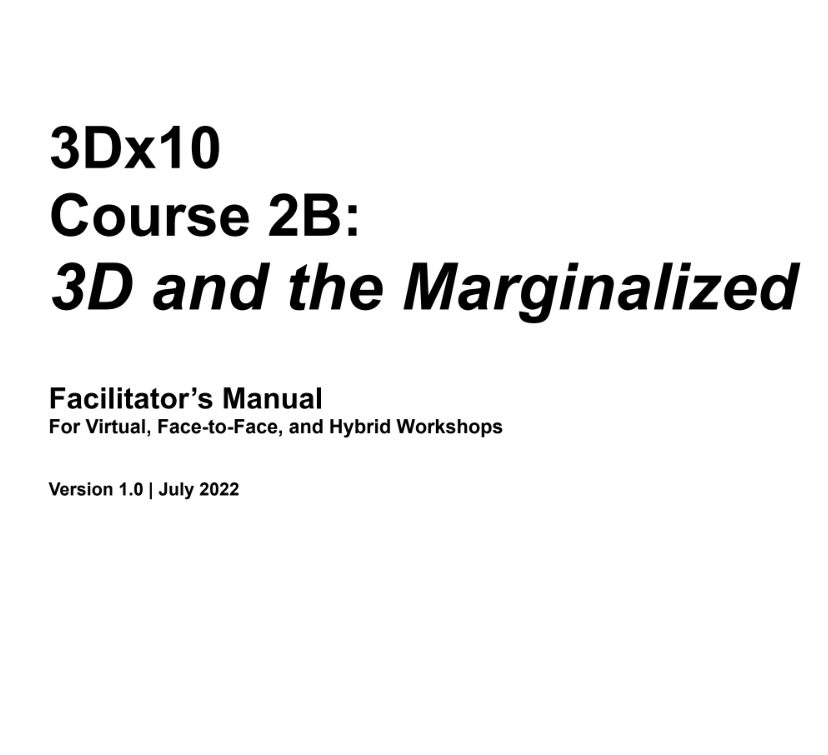| Course Title | Gender and Data |
| Outline/ Content | Session 1. Introduction to GEDSI and 3D 1.1 Introduction to sex and gender statistics in the Philippines 1.2 Poverty among the basic sectors in the Philippines 1.3 Limitations of current poverty measures (scope of gender) Session 2. All about GEDSI: A Review of Basic Concepts Session 2A: Advancing the Importance and Use of Sex Disaggregated Data (SDD) and Gender Related Information in the Formulation of GAD Plan and Budget 2A.1 Review and validation of GAD concepts 2A.2 Integration of sex disaggregated data and gender information in the formulation of GAD Planning and Budgeting 2A.3 Gender Responsive monitoring and evaluation system Session 2B: Introduction to SOGIESC and LGBTQI 2B.1 Do I have SOGIESC? 2B.2 Sex characteristics (assigned sex at birth) 2B.3 Gender identity 2B.4 Gender expression 2B.5 Sexual orientation 2B.6 Stigma and Discrimination 2B.7 Ways forward Session 2C: Effective Participation of Persons w/ Disability in Governance 2C.1 Understanding disability in four models 2C.2 Philippine laws on disability 2C.3 Women’s Social and Development Rights 2C.4 Rights of persons with disability 2C.5 Gender transformative governance 2C.6 Gender and disability in security, justice, and peace Session 2D: Gender Fair Language 2D.1 What is sexist language 2D.2 Nature of sexism 2D.3 Intersectionality 2D.4 Gender roles 2D.5 Examples of sexist language 2D.6 The need for gender fair language 2D.7 Being an ally Session 3: GAD Statistics for Policy Development 3.1 Women’s Empowerment Framework (GEWEF) 3.2 Who are the Duty Bearers? 3.3 Data Collectors 3.4 Thematic Areas of Data Collection 3.5 Levels of Indicators 3.6 Participation of Civil Society Organizations 3.7 Types of Data Session 4. Making Data Count for All: Tabaco City’s Story on Data Driven Development 4.1 MDG targets and CBMS Indicators 4.2 Comparative Processes in Designing Programs 4.3 Community Based Monitoring System (CBMS) 4.4 Applications of CBMS during the Covid-19 Pandemic 4.5 GEDSI in CBMS 4.6 Challenges encountered 4.7 Lessons learned |
Lecturers
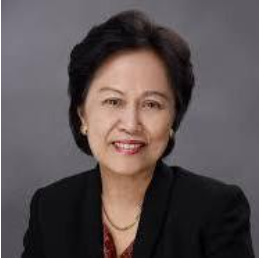 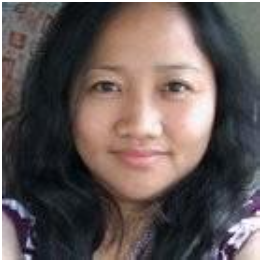 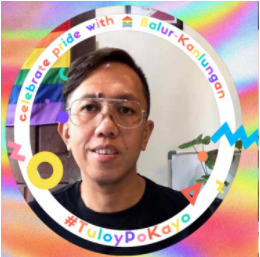 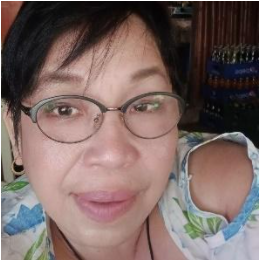 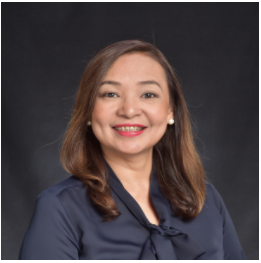 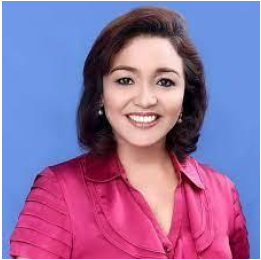
|
Dr. Carolyn I. Sobritchea currently serves as a Professorial Lecturer of the UP Open University and Chairperson of the CHED Technical Panel on Gender and Women’s Studies. She is also a member of the Advisory Board of the TESDA Women’s Center, the Former President of the International Phi Kappa Phi Honor Society, Chapter 45 and President of the UP Center for Women’s Studies Foundation. Her long service at the UP Center for Women’s Studies was marked by the establishment of gender offices in all the constituent campuses of UP, the anti-sexual harassment facility and counseling programs for abused students and employees. She helped publish numerous books and articles on various women and gender concerns as well as mainstreamed gender topics and courses across the various curricular programs of the University and other tertiary schools across the Philippines and Asia. Ms. Ma. Gichelle A. Cruz has a combined professional work experience of being a media practitioner, educator, researcher, women activist, and a social development worker for more than a decade. She is a recipient of several local and international grants for research dissemination and has co-authored several development handbook for gender courses. Further, her current passion includes promoting participatory and empowering processes through ICT4D initiatives such as Participatory Video (PV) and Digital Stories (DS) to international and local networks including grassroots communities such as informal workers, fisherfolks, women, Deaf community, homeless federation, urban residents affected by petroleum seepage and women NGO workers. Percival Cendaña was the first openly gay chairperson of the University of the Philippines Student Council. He convened the first National Lesbians and Gays Conference, became the founding President of the Student Council Alliance of the Philippines. He became the commissioner of the National Youth Commission in 2011 until 2016. He resigned his post as Babaylanes President upon being elected as the first nominee of Akbayan Party for the 2022 national elections. He has consistently fought for sexual and reproductive rights, LGBTQIA equality, youth empowerment, and human rights. Ms. Jocelyn Rosemarie Cris Cevallos-Garcia has been an advocate for persons with disabilities in the Philippines for 32 years. As one of the recognized leaders of the disability sector in the country, she has been at the forefront in organizing advocacy and lobbying activities, attending consultations, and policy change/formulation for a rights-based society. Joy is also a fierce advocate for women with disability and frequently joined consultations and acts as a resource person on disability-related issues, e.g., violence against women, sexual and reproductive health, and empowering women with disabilities among many others. Dr. Excelsa C. Tongson is an Early Childhood Care and Development (ECCD) specialist with a gender and social development perspective. Possesses 15 years of professional and academic experience. Has handled key administrative positions. Has conducted numerous trainings and consultancies for various local and international organizations. Research interests include ECCD, women and gender studies, and women in the sandwich generation. She is currently the Deputy Director for Training and Outreach and Extension Program, University of the Philippines Center for Women’s and Gender Studies. She is also a faculty member at the Department of Family Life and Child Development, College of Home Economics, University of the Philippines Diliman. Mayor Cielo Krisel Lagman Luistro is the Tabaco City`s first elected woman City Mayor. Before being elected as the City Mayor of Tabaco, Krisel Lagman-Luistro served as Congresswoman of the first District of Albay for two consecutive terms (1998-2004), member of the Sangguniang Bayan and the Albay Sangguniang Panlalawigan and Director of the National Liga ng mga Barangay. During her six years in Congress, City Mayor Krisel Lagman-Luistro was able to pass into law several priority measures, among them were RA 9020, An Act Creating the City of Tabaco; RA 9242, An Act Mandating the Use of Tropical Fiber for Uniforms of All Government Employees; RA 9208, An Act Criminalizing Trafficking in Persons; RA 9262, The Violence of Women and Their Children Act; and RA 9231, The Special Protection of Children Against Child Abuse, Exploitation and Discrimination Act. City Mayor Krisel was a University Scholar in the University of the Philippines, Diliman where she finished her Bachelor of Science in Zoology. She also graduated Magna Cum Laude with a Bachelor of Science in Nursing and Public Health from Neumann College, Aston, Pennsylvania, USA where she was recipient of the Excellence in Leadership Award. She is also registered in the “Who`s Who in American Universities and Colleges”. Mayor Krisel attended the John F. Kennedy School of Government in Harvard University, Cambridge, USA where she completed an Executive Program on Leaders in Development. She also took several courses on Strategic Leadership and Management for Population and Reproductive Health and Advance in Health Communication and Advocacy at the Bloomberg School of Public Health and Center for Communications Programs, John Hopkins University, Baltimore, Maryland, USA. She was also granted a Hubert Humphrey Fellowship in Public Policy and Global Health, under the Fulbright Program, in Emory University, Atlanta, Georgia, USA. In 2015, Krisel completed her Master’s in Public Administration at the University of the Philippines National College of Public Administration and Governance with a summa cum laude Grade Point Average. |
| Recommended Readings |
GLAAD. (2016). Reporting on the bisexual community: A resource for journalists and media professionals. Lips, H. M. (2020). Sex and gender: An introduction. Waveland Press. Simm, G. (2020). Queering CEDAW? Sexual orientation, gender identity and expression and sex characteristics (SOGIESC) in international human rights law. Griffith Law Review, 29(3), 374-400. What it means to be a b(ee) bi+ 101. (2018). Bisexual Resource Center. |
Course Manual
About Instructor
Login
Accessing this course requires a login. Please enter your credentials below!


